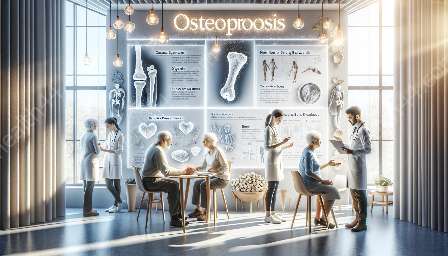Osteoporosis is a common health condition characterized by weakened bones, making them more susceptible to fractures and breaks. While several factors contribute to the development of osteoporosis, including genetics, nutrition, and lifestyle choices, hormones play a crucial role in maintaining bone health.
The Role of Hormones in Bone Health
Hormones are chemical messengers produced by various glands in the body, and they play a significant role in regulating essential bodily functions, including bone density and turnover. Several hormones are particularly influential in maintaining bone strength and integrity, with estrogen, progesterone, testosterone, and parathyroid hormone being among the key players.
Estrogen and Progesterone
Estrogen, primarily produced by the ovaries in women and in smaller amounts by the adrenal glands in both men and women, is essential for maintaining bone density. It helps regulate the activity of osteoblasts, the cells responsible for forming new bone, and osteoclasts, the cells involved in breaking down bone tissue. When estrogen levels decline, especially during menopause, bone loss can accelerate, increasing the risk of osteoporosis and fractures.
Similarly, progesterone, a hormone involved in the menstrual cycle and pregnancy in women, also influences bone density. It works in conjunction with estrogen to promote bone formation and reduce the resorption of bone tissue.
Testosterone
In men, testosterone plays a crucial role in maintaining bone health. It supports the production of new bone tissue and helps regulate bone density. Low testosterone levels, often associated with aging or certain health conditions, can lead to decreased bone mass and an increased risk of osteoporosis and fractures.
Parathyroid Hormone (PTH)
Produced by the parathyroid glands, parathyroid hormone (PTH) helps regulate calcium levels in the body. It stimulates the release of calcium from bones into the bloodstream, a process known as bone resorption, to maintain adequate calcium levels for essential bodily functions. While PTH is necessary for maintaining calcium balance, excessive levels or dysregulation can lead to bone loss and weakened bone structure.
Impact of Hormonal Imbalance on Osteoporosis
Fluctuations or deficiencies in hormone levels can significantly impact bone health and contribute to the development of osteoporosis. Common scenarios where hormonal imbalance may influence bone density include:
- Menopause in Women - The decline in estrogen levels during menopause contributes to accelerated bone loss and a higher risk of osteoporosis in women.
- Andropause and Low Testosterone in Men - As men age, testosterone levels may decline, increasing the likelihood of bone density reduction and osteoporosis.
- Thyroid Disorders - Thyroid hormone imbalances, such as hyperthyroidism or hypothyroidism, can affect bone metabolism and lead to bone loss.
- Primary Hyperparathyroidism - Overproduction of parathyroid hormone can lead to excessive bone resorption and weakened bones, contributing to osteoporosis.
Preventing and Managing Osteoporosis through Hormonal Health
Given the significant impact of hormones on bone health and osteoporosis risk, maintaining hormonal balance is crucial for preventing and managing the condition. Several strategies can help support hormonal health and promote bone density:
- Healthy Diet - Consuming a well-balanced diet rich in calcium, vitamin D, and other essential nutrients can support hormonal balance and bone health. Calcium and vitamin D are particularly important for maintaining strong bones.
- Regular Physical Activity - Engaging in weight-bearing exercises, such as walking, dancing, or resistance training, can help improve bone density and reduce the risk of osteoporosis. Physical activity also supports hormonal regulation and overall well-being.
- Hormone Replacement Therapy - In some cases, hormone replacement therapy (HRT) may be recommended to support hormonal balance, especially for women experiencing menopausal symptoms and bone density concerns.
- Monitoring and Treatment of Hormonal Disorders - Regular evaluation and management of hormonal disorders, such as thyroid conditions or primary hyperparathyroidism, can help minimize their impact on bone health.
- Healthy Lifestyle Habits - Avoiding smoking, limiting alcohol consumption, and maintaining a healthy body weight can contribute to hormonal balance and reduce the risk of osteoporosis.
Conclusion
Understanding the intricate relationship between osteoporosis and hormones is essential for effectively preventing and managing the condition. Hormones play a vital role in maintaining bone density and strength, and their balanced levels are crucial for overall well-being. By adopting healthy lifestyle habits, seeking appropriate medical care, and supporting hormonal health, individuals can take proactive steps to minimize their risk of osteoporosis and promote long-term bone health.


